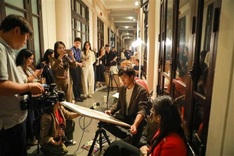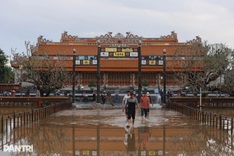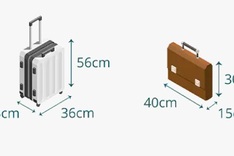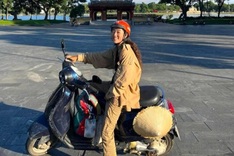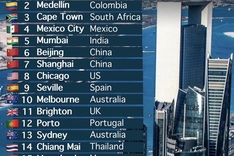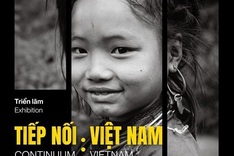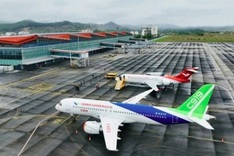A pilotless aircraft, making glass from husks and ash, and technology training for home helpers have won awards for Young Science Talent in 2014.
The Young Talent Award is conveyed by the ministries of Education and Training, and Science and Technology, with the Vietnam Chamber of Commerce and Industry and other organisations. The award aims to encourage lecturers and students in innovation. The awards for 2014 comprised 11 first prizes, 32 second prizes and 78 third prizes, with 108 awards of encouragement.
The following awards were judged the most outstanding of prize winners by the state-owned Vietnamplus agency.
Training tech-savvy home helpers

Students from Hanoi Economics University win first prize at Young Science Talent Award
Demand for home helpers in big cities is high and continues to grow, but the pool of labour is drawn mostly from among women in rural areas who have little exposure to technology, particularly the array of electronic devices increasingly common in urban homes. A group of students from the Hanoi Economics University started a project to assess capability of house helpers in the capital to give them training courses. The project won first prize in Young Science Talents Award.
Group leader Nguyen Nguyet Minh said, "We had to interview a large number of people before we could get an adequate sample for data analysis. This, on top of our classes and homework, was a strain. Sometimes, we felt like giving up because many people refused to be interviewed."
Minh's group developed a model for training home helpers and developing a skills-based system that will certify home helpers in various skills and match them with prospective employers. "We hope our project will encourage the authorities so helpers can be more professional and have stable jobs," Minh said.
Pilotless aircraft

Pilotless aircraft model developed by students from Hanoi University of Industry
Four students at the Hanoi University of Industry have developed a pilotless aircraft, which won Duong Van Thien, Pham Van Sang, Phan Van Nghiem and Kieu Thanh Son third prize.
After two-and-a-half years work, the students developed a drone with a range of one kilometre and a ceiling of 500m, capable of transmitting data back to computers on the ground. Thien, the group's leader, said they learned from their mistakes, and recalled losing their drone a number of times. "We then wrote our phone number on it so people could call us if they found it," he said.
The students, who spent VND30m on the project, avoided flying their drone near lakes in early tests. "It can fly on a designated route now, but we still need to use hand-held manual controls for take off and landing," Thien said. "I hope other students can help perfect our design."
Creating glass from husks and ash

Students from Hue University of Science test liquid glass in laboratory
Students from the Hue University of Science perfected a method of making liquid glass from rice husks and ash, winning them third place. Ho Phuoc Diep, Nguyen Thi Le Giang and Tran Thi Lien had the idea after reading a published article that husks and ash contain a high volume of silicon dioxide (SiO2), a key compound for the creation of liquid glass, or natri silicat (Na2O.nSiO2). Diep said liquid glass has uses in making waterproof paint, soap, cloth shoes and ceramics. The demand for liquid glass in Vietnam is thousands of tonnes each year, but current manufacturing processes involve complicated technology for baking white sand in a 1,300 Celsius kiln.
"The SiO2 in husk and ash can easily be turned into liquid glass at much lower temperatures, which means the price could be dramatically reduced. And Vietnam is still an agriculture country so we have a lot of husks and ash," Diep said. The students hope to test their laboratory success on an industrial scale.

